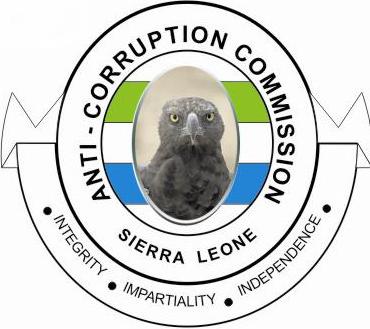By: Mohamed A. Kabba, Public Education Officer, ACC
There is no doubt that human beings are for sure creatures of habit. And habit, they say, is like smoke, and if not controlled through correct chimney facility, it can uncontrollably damage the ozone layer with its hazardous carbon monoxide particles, thus causing global warming and other environmental deprivation.
Arising from the above, social psychologists affirmed that “Our bodies and minds are dependents of stimulants”, but our actions and pattern of reactions to such bodily stimulants largely depends on our consciousness and regard for humanity. And the spirit of “What can affect me will surely affect another”.
It is also my conviction that if only the human greed and need concept had not taken the center stage in every aspect of our human relationship and development, I am sure that fertile and land-rich in mineral and organic resources will not be ruined by the brutal hands of its cultivators and consumers.
Proponents see habit as a security blanket enveloping us in a consistent presence and comfort of familiarity. They ascertain that we do them unconsciously not even realizing that we are doing them. For instance, the elites as well as the non-elites sometimes can stick fingers, pen covers and cigarettes into their mouths not realizing that they are in public. But is this really true?
I guess those who smoke are often told of the health hazards of smoking. And this is so for the corrupt officials who have been treated thus ranging from raids, arrests, detentions, fines, suspensions, dismissals, imprisonment and in most cases publicly naming and shaming.
But if we as people do not stop for a second and take a deeper rethink into our philosophy, attitude, dispositions and suddenly the reformation of bad habits, then corruption will continue to be blatantly perpetrated by all facets of society.
While the gains made by the ACC ranging from the increase in punishment and fines, the use of the Asset Declaration regime, the setting up of the Special Anti-Corruption Division within the High Court, the Non-Conviction Asset Based Recovery, the progress made in both national and international indexes and the extensive prevention work made to reduce corruption risks in Ministries, Departments and Agencies (MDAs) etc. would all be in vein if we as people do not change our habits. Consequently, places like churches, mosques, markets, educational institutions, public sector institutions (MDAs) will continue to be victims and carriers of contagious bacteria and viruses of corrupt practices.
The author of “The Power of Habit”, Charles Duhigg detailed that “habits are not born, rather they are created” perceiving that every bad, good or insignificant habit starts with the psychological pattern called the “Habit Loop”. He therefore sees habit manifesting itself in some sort of circular behavior of three different phases as follows.
The step triggering or telling our brain to let a certain behavior unfolds. Apparently, those who perpetrate acts of corruption, I believe, fully know the ramifications but they do so with the intention to unleash terror on the socio-economic indicators of national transformation and progress.
The second step is the behavior itself or the routine that it creates. Again, year in and year out, we see the massive fluttering of procurement procedures, embezzlement of public/donor funds and property, according to successive Auditor General’s Report. This has today engineered the vision of the Commissioner of the Anti-Corruption Commission, Francis Ben Kaifala Esq. to primarily focus on prevention and consolidation of gains made to be the steering of the 5th-Generation of the National Anti-Corruption Strategy (NACS).
The third step is the reward or something that your brain likes that helps to remember the “Habit Loop”. On the contrary, corruption is today seen as a non-lucrative venture due to critical law reformation made in the Anti-Corruption Act 2008 as amended in 2019 and the robust efforts undertaken by the ACC.
What can we do?
Certainly, “you cannot teach an old dog new tricks”, and as such, it is high time we uncovered the beauty of Proverbs 22:6 which says, “Train up a child in the way he should go, so when he is old, he will not depart from it.” Similarly, a huge sense of moral principles detesting acts of corruption should be programmed in children, while the older ones should suggestively be muffled with the mantra of punitive action which says, “Kill dog before dog eye make dog know say die dae.”
These trainings should be reinforced in homes, schools, communities and places of worship in order to save our harvests generated in Ministries, Departments and Agencies.
Psychologists agree that once we form habits, they are hard to break because we forget sometimes that we are doing them. These habits become inhibitors and some have the power to control our lives.
Studies have shown that it is not poverty, low income or salary and family pressure that are primarily responsible for the perpetration of corrupt practices. I think it is our collective failure to wheel the power of “self-determination and willingness” to ask questions such as: Who am I? What is my obligation as a Sierra Leonean? What can I do to protect and defend her peace, unity and dignity? Have we been honest in the judicious use and equitable distribution of her resources?
Finally, if we can make it a mission to do deep soul-searching and say: What do I need or want in life? Why am I doing this? How do I want to represent myself? Surely, we can beat corruption and make Sierra Leone a better place.
@ Public Education Unit, Bo




